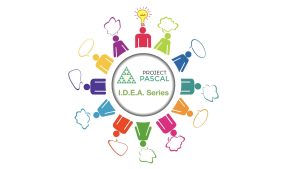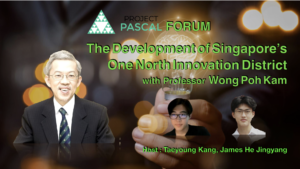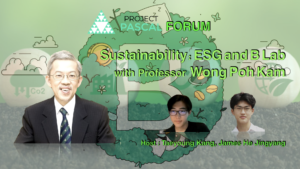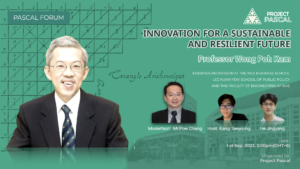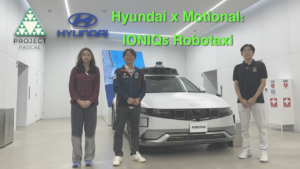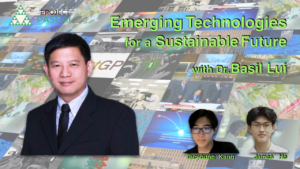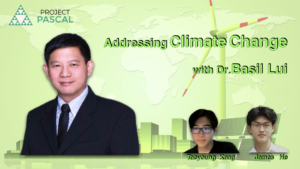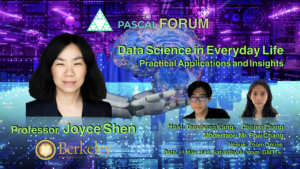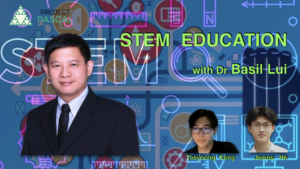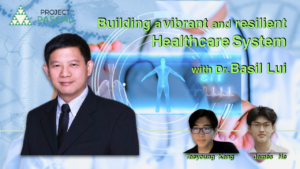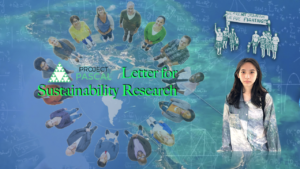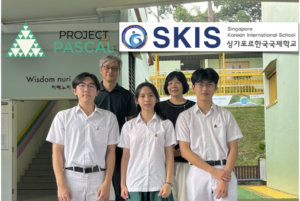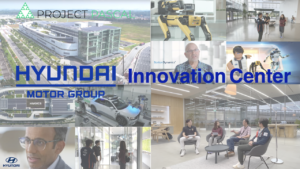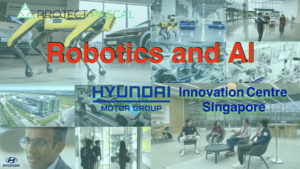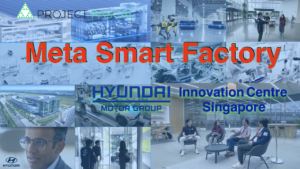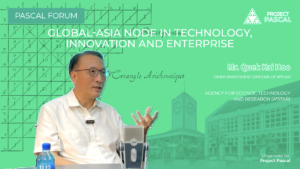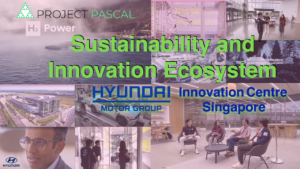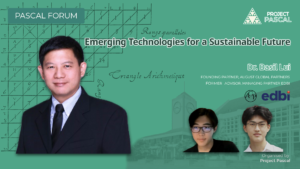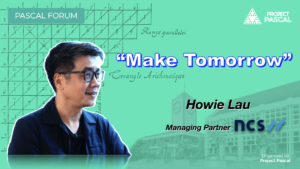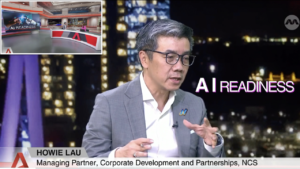Sustainability and Smart Farming at HMGICS by Taeyoung Kang
PROJECT PASCAL FORUM
Exploring Technological Innovation and Sustainability at HMGICS
Mr. Min Won Byun, Head of Business Cooperation
Mr. Wee Tak Hoo, Digital Transformation Leader
Host: Taeyoung Kang, Chenxi Zhang
Organized by Project Pascal
Pannel Students: Sashil Anand, Terrence Lim, Kushagra Kesarwani, Amin Kim, Jeankyung Go, Haein Song
With only one percent of land given over to agriculture due to its rocky geology, Singapore imports 90 percent of food consumed in the region. To increase food self-sufficiency the Singapore government has introduced its 30 by 30 policy, promoting alternative agricultural technologies, including smart farms.
The HMGICS Smart Farm focuses not just on productivity in a compact environment, but also enhancing customer awareness by allowing visitors to interactively experience the entire farming process.
Through the synchronization of human efforts and an automated conveyor system utilizing sophisticated robotics, the Smart Farm produces up to nine different crops within the facility. Harvested produce is given to customers as a memento of their visit, as well as donated to local communities in Singapore. The crops will also feature on the menu of the tasting lounge and the upcoming farm-to-table restaurant – scheduled to open in Q2 2024 – for customers to enjoy sustainable dishes.
To complete the customer experience, a new Smart Farm presents a futuristic solution to enhance Singapore’s food production capabilities, exemplifying the Group’s vision for sustainable urban growth.
“The ideas and products created here are innovated in Singapore, not just made in Singapore. Most importantly, HMGICS is an innovation facility centered on R&D. Grounded on Singapore’s future-oriented policies and infrastructure, we will act as a global incubator for Singapore’s talents and businesses through our Corporate Lab Program.”
Mr. Jay Chang
President and CEO Hyundai Motors Group
“I don’t think our single smart Farm is going to contribute huge in the food Security in the Singapore but we want to promote Singapore government’s in Vision which is 30 by 30 means like Singapore government wants to secure 30% in security by 2030 whenever the customer visit our Factory we are going to show them that our robotic technology can change the way of the farming through our smart Farm”
Mr. Min Won Byun
Head of Business Cooperation HMGICS
Pascal Thoughts on Sustainability and Smart Farming
“With real-time data analytics and mobile connectivity, you’re always in control, no matter where you are Smart Farming promotes environmentally friendly practices, preserving our planet for future generations. Societal challenges like food security are also addressed while minimising environmental impact. By fostering collaboration and knowledge exchange, we can accelerate the adoption of sustainable farming techniques and contribute to a more resilient and food-secure future.”
Sashil Anand
“I’m excited about the potential of smart farming to address inequalities in access to nutritious food. By integrating technology into small-scale farming operations in rural areas, we can empower local communities to enhance their food security and economic livelihoods sustainably.”
Kushagra Kesarwani
“The aspect of data analytics in smart farming has caught my attention. This data-driven approach not only improves efficiency and productivity but also reduces environmental footprint by minimizing waste and chemical inputs.”
Terrence Lim
“Smart farming and sustainability are incredibly vital in today’s world. Learning about how HMGICS integrates smart farming into its operations to promote sustainability is inspiring. It’s amazing to see how technology and automation can be utilized to address societal challenges like food security while also minimizing environmental impact.”
Hae In Song
“I’m particularly intrigued by the role of smart farming in enhancing customer awareness of sustainable urban growth. It’s crucial to educate the public about the importance of sustainable practices in food production and how technology can be leveraged to achieve this.”
Jean Kyung Goh
“The concept of a 100% automated smart farm is fascinating. It not only showcases the power of robotics technology but also highlights the importance of sustainability in agriculture. By minimizing human intervention and maintaining cleanliness, such farms can contribute to efficient food production while reducing water and resource usage.”
Amin Kim


